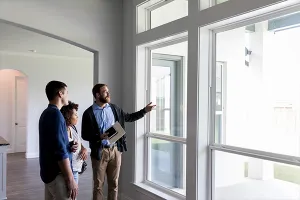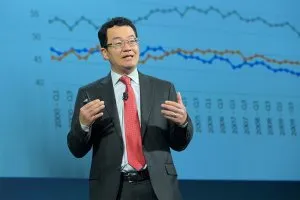
What began as a drop-in center called The Gathering Tree in 2010 is now the organization behind multiple trailblazing tiny-home communities for the unhoused—all thanks to REALTOR® Linda Brown. At Eden Village, affordable 400-square-foot homes come fully furnished for dozens of chronically homeless residents with disabilities. This housing-first nonprofit, founded by Brown and her husband, David, reduced the homeless population in Springfield, Mo., by 25% and helped residents sleep safely for more than 74,000 nights.
With 55 current residents in two communities, Brown’s construction of Eden Village Three will create 24 more tiny homes. Her nonprofit also bought land for a fourth village, is searching for land for a fifth village and developed a tiny-housing blueprint that’s been implemented in 13 other villages under construction across the U.S. Each village works to support residents with health services, job training and individual case management.
It was by developing relationships with her beloved homeless friends that Brown realized, “You go home to a warm bed and they go hide in a tent somewhere; it makes you think,” she explains. “Eden Village was birthed from that, and we thought, surely, we can give them housing so they have hope, dignity and self-respect. … And I thought, ‘Why can’t we build a tiny-home village to house our friends?’”

Brown, a real estate professional with AMAX Real Estate who was a 2020 Good Neighbor Award winner, welcomed her first resident in 2018. Brown’s long-term solution to homelessness morphed into an innovative model she teaches at conferences to those wanting to learn how to serve their community’s homeless population.
“When you come for a conference, we tour [Eden Village]. People see it’s an easy, simple solution, and now we have stats proving the concept works,” Brown says. “These residents are amazing and seeing that transition from being on the streets to someone living in a community is mindboggling.”
Housing Leads to Better Outcomes
Brown’s first property, Eden Village One—which was studied by Missouri State University for the past five years—touts impactful outcomes: 70% of residents exiting Eden Village find other permanent housing, and 25% increase their income.
Additionally, 60% forge higher-quality lives through addiction recovery, getting away from domestic violence, and utilizing conflict avoidance strategies. Village staffers have seen renewed hope and self-worth in residents and greater personal satisfaction and achievement of self-care goals.
“We know all the residents; we bring in services for them, and most residents have caseworkers. We’re seeing their lives change. They now have dignity and something to look forward to,” says Brown, adding that she hopes to have five villages in Springfield in the future.
The gated, drug-free, crime-free communities also have a specific application process. Residents are selected based on their likelihood to thrive and feel a sense of belonging in the villages. Also, monthly health, wellness and maintenance checks help residents stay on track with their goals, from recovery to self-care.

Each resident pays $325 in rent, not including utilities or deposits, and receives services including mental health, medical, job training and case management. The villages partner with organizations like Burrell Behavioral Health of Springfield, the National Alliance on Mental Illness, Jordan Valley Community Health Center and Community Partnership of The Ozarks, which includes a substance abuse center.
“We talk about a housing-first solution to homelessness, but it’s more about community and teaching our homeless friends to be good neighbors,” says Jon Bomberger, associate broker at Coldwell Banker Realty in Hershey, Pa., who opened his own Eden Village locally under Brown’s mentorship.
“Home values go up in Eden Village cities, and we anticipate the same will be true for us,” Bomberger adds. “People who have a place to call home are more involved in their communities in positive ways.” The research Missouri State University has done on the villages supports this idea. “We have been able to bring a homeless population to an area and raise the property values. Building our houses has actually helped the area, not hindered it.”
Rebuilding a supportive safety net with this pioneering concept means encouraging community through events like potlucks or construction of community centers, stores and gardens—“like the old-timey, sort-of Pleasantville neighborhood where they know their neighbors,” Bomberger explains.
Just Like Family
“We’re a family and we look after them. They look after each other. They know they’re loved and wanted, and they give back tenfold,” Brown says. “We have a young man who’s lived in Eden Village several years and fell back on his meth addiction a couple times but stood up and said, ‘I love my home. I want help.’ He’s gotten help, worked on our staff payroll for a long time and does all kinds of maintenance work.”
Another multi-year resident worked on Eden Village’s maintenance staff, finished college, bought a truck and moved to Alaska with his girlfriend. A mom reunited with her kids after years of disconnection and became matron of honor at her daughter’s wedding. And a couple who became sober after being addicted to meth got married at Eden Village; the husband secured full-time construction work, and the wife finally got to babysit her grandkids.

Residents who pass away are honored as well in a memorial garden and ceremony. “We inter their ashes in a round columbarium and celebrate their life so they know people care enough to remember them,” Brown says.
“We have another gentleman who’s been here about five years who has prostate cancer,” she adds. “Cowboy—that’s his street name—came to my husband and me a week or two ago and said, ‘I want to let you know you saved my life.’ When you get that, it makes it all worthwhile, and you keep going.”
Leading the Community by Example
“At a certain point, it becomes larger than yourself, so you can’t not get involved. We’ve come too far; it’s a whole movement now,” Bomberger says. “As long as we drive by a tent city and see people who are completely insecure and vulnerable, we keep going.”
Brown says the Good Neighbor Award gave her momentum to keep going. A spot on “The Kelly Clarkson Show” spurred local and national REALTOR® interest in repeating her groundbreaking model.
“Keller Williams Red Days constructed a workshop building, and Coldwell Banker bought our very first tiny home,” Brown remembers. “[My local REALTOR® association] then bought a home and ‘adopted’ the woman who lives there; they look after her, so it’s a win-win.”
Brown, who spent decades as a registered nurse before her real estate career, knows how to care for people. REALTORS®, who volunteer at three times the national average, naturally stand out in their communities for giving back. “Whether it’s buying or selling a home, or being a friend, it says a lot when we step up and do something that’ll beautify or help our community,” Brown says.
Linda’s empathetic nature means she “sees intrinsic value and humanity in others who happen to be living on the street in a tough spot,” Bomberger observes. “Hopefully, [real estate professionals] are in this business because it’s about community, and housing has such a tremendous impact … but there’s people being left behind.”
If you have a passion and heart for a cause, Brown says, put in the effort to go for it. “In the beginning, we didn’t know what we were doing. We had no clue. We didn’t have any money, but our prayer was if this isn’t what [God] wants us to do, then close the door,” she explains. “And as you can see, the door has been opened very, very wide.”









